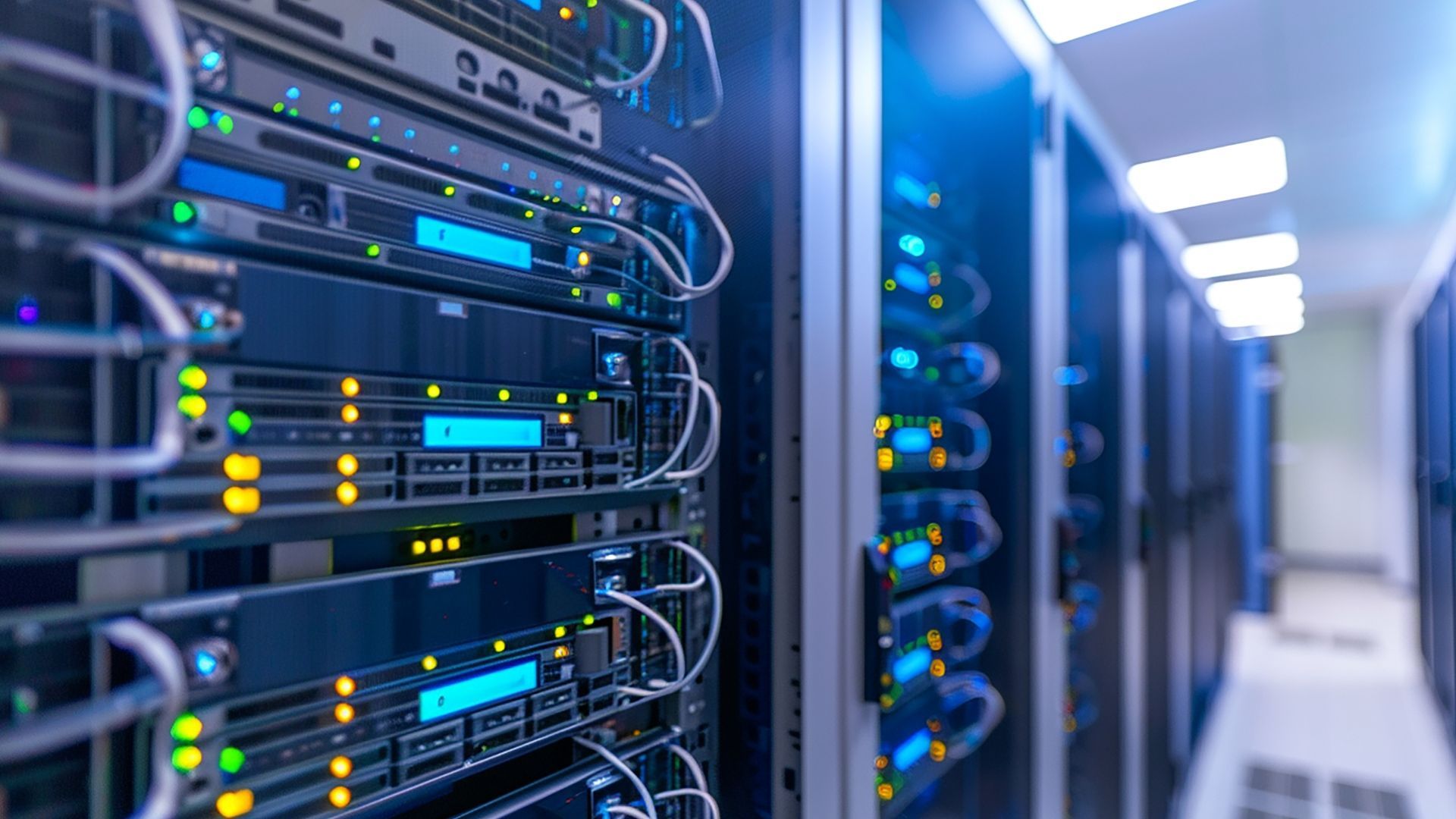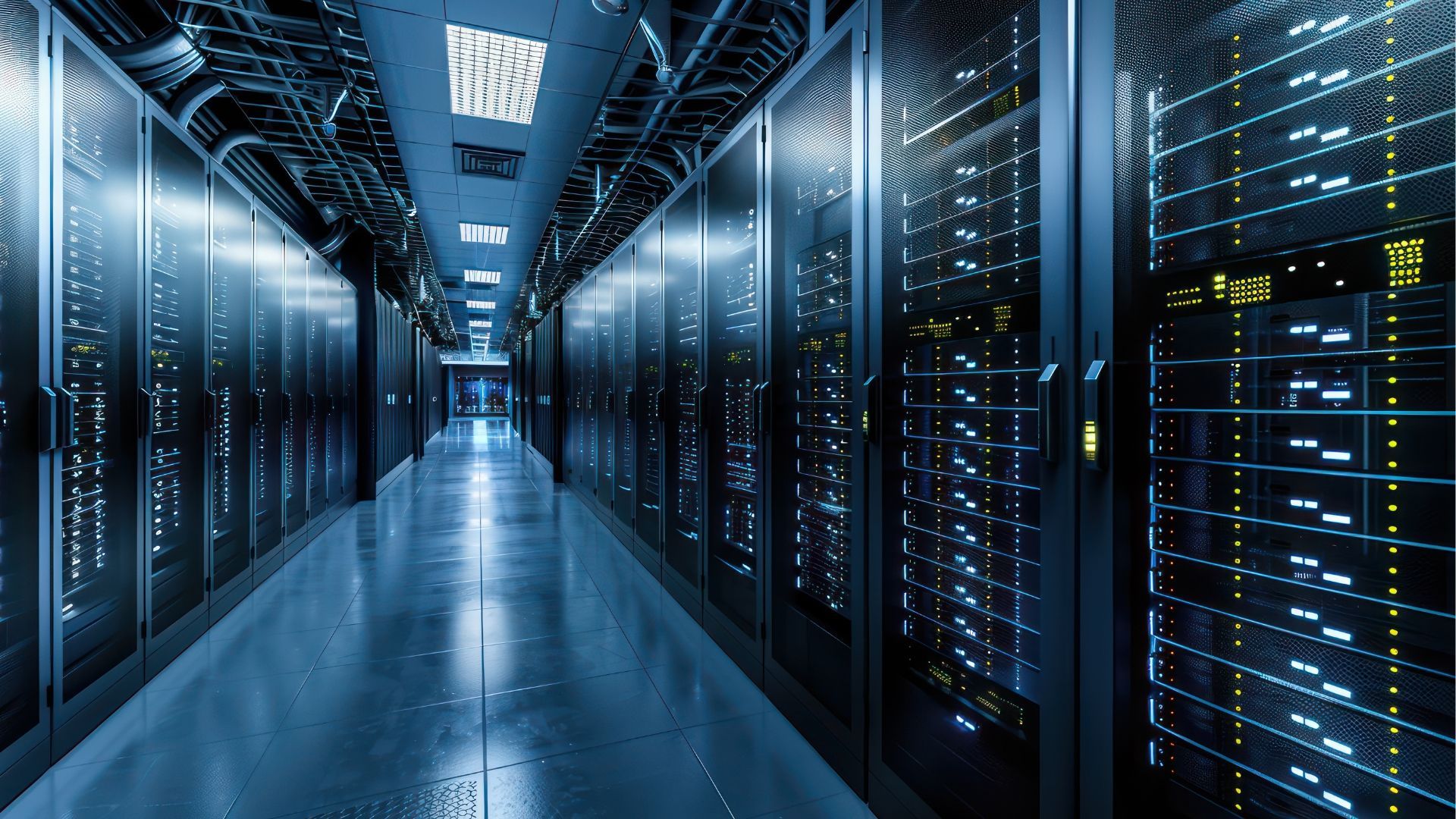The future of AI and cloud computing: predictions from pop culture
What is the future of artificial intelligence and cloud computing – and can sci-fi and pop fiction give us any clues? Join us as we dust off our crystal ball.
In 2014, Stephan Meyn wrote an article for Wired entitled, "The Cloud in 10 Years: Will It Be a Major Force, Same Visibility in the Next Decade?"
Nine years on, and he got one thing eerily right: cloud computing would lead to a huge expansion of remote working.
"Expect," he wrote, "fewer people sitting in offices, as cost pressures make large centralised offices less essential. Professionals whose core jobs require them to be out and about – visiting customers, working on jet engines, or transporting goods – will not be required to return to the office at the end of the day and may well not see the office for extended periods of time.
"This," he concludes, "is the future of cloud."
Now the future of cloud is here and forms of remote working are the norm. While this process was accelerated by the pandemic, it's safe to say that technology has been leading us this way for a while.
But what's the new future of the cloud? Many people agree that it's sure to involve AI.
Artificial intelligence and cloud computing
AI is one of those scientific developments that hasn't only been predicted by scientists, but also by writers of imaginative fiction.
In 1964, for instance, sci-fi author Arthur C. Clarke
predicted that "the most intelligent inhabitants" of the future "won't be men or monkeys" but machines.
He went on: "The present-day electronic brains are complete morons – but this will not be true in another generation. They will start to think and eventually they will completely out-think their makers."
To put that in perspective, a computer at the time – say the PDP-1 – had 9.2 kilobytes of memory. Today, a MacBook Pro will come with anywhere between 256 gigabytes and two terabytes of storage.
The sheer amount of data that companies deal with is part of the reason why AI is likely to have a big influence on the future of cloud computing.
Those fathomless petabytes of data running through a company's bloodstream simply can't be managed by an administrator. Companies need software to take the reins – and software is more and more using AI.
It's likely that AI will be increasingly used to automate routine IT management tasks – resource allocation, for example, and scaling.
It's already being used to analyse data and "sense demand". As the technology improves, it seems highly likely that data analysis will be carried out primarily by bots.
AI also has lots of potential for cyber security. A machine can, in theory, detect and contain threats with far greater speed and accuracy than humans.
As cyber criminals grow in sophistication and threats become ever harder to manage, cloud-based AI could be the hero we need.
Times when sci-fi and popular fiction got it right
Sci-fi and pop fiction have long been fascinated by the prospect of artificial intelligence. In fact, a cyberpunk novella by American writer Vernor Vinge may have predicted cloud computing back in 1981. Take this quotation:
"In minutes, he had traced through three changes of carrier and found a place to do his intermediate computing. The Comsats rented processor time almost as cheaply as ground stations, and an automatic payment transaction… gave him sole control of a large data space within milliseconds of his request."
It's all there: "intermediate computing", renting out processor time and data space, direct debits, superfast computing… The book also hints at a future "singularity" – a point in the future where technology slips out of our grasp and takes over. This is a recurring theme in dystopian sci-fi.
Other predictions are more lighthearted – and several have come to pass.
Star Trek is like an Argos catalogue of cloud-based tech: Bluetooth headsets, Alexa-style voice-activated assistants, mobile phones and even automatic sliding doors. And as VR continues to develop, we might be closer to the Holodeck than ever before.
Checking your smartwatch or smartphone for a weather update? Back to the Future predicted it back in 1989.
In the early sixties, labour-saving devices were changing households in the developed world – so it's no surprise that The Jetsons included a robot maid in its animated cast.
While sentient robot servants are still a pipe dream, hands-free vacuum cleaners like iRobot are on the market – and they're hooked up to the cloud.
Can sci-fi tell us about our future?
Neal Stephenson is an American sci-fi writer whose fiction – especially 1992's Snow Crash – has been credited with predicting big data, virtual worlds and wearable tech.
But by his own admission, he didn't see cloud computing coming – and, he adds, "I think that things are less predictable now".
The reason for this, he says, is that "the instruments of change are more widely distributed among a larger number of people". Technological research and development are no longer centralised – so you have to take notes fast if you want to predict future developments.
Nevertheless, speculating about the future is a tale as old as time – and Canadian-American sci-fi writer Robert J. Sawyer made this
prediction back in 2019:
"The future of computing is artificial consciousness, and it will be here within 20 years, and maybe much sooner than that… Thinking – and feeling – machines won't be burdened with billions of years of Darwinian nastiness driving them and they won't think in terms of win-lose but rather of win-win, because their natural environment is one of endless bounty, of unlimited copying of whatever resource one might desire. In the end, we may finally learn compassion and altruism from our machine children."
It's not a million miles from Arthur C. Clarke's prediction of "inorganic or mechanical evolution":
"Is this depressing? I don't see why it should be. We superseded the Cro-Magnon and Neanderthal man and we presume we're an improvement. I think we should regard it as a privilege to be stepping stones to higher things."
What's next?
Predicting the future is never a reliable science. For every prediction of Nostradamus that appears to have come true, there's a whopping error. But whatever our future looks like, it's very likely that AI and cloud computing will continue to shape our private, work and leisure lives.
Ascend provides expert
cloud solutions in Ireland , the UK and beyond. To keep up to date with the latest cloud news, follow our
blog.












